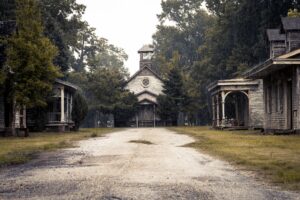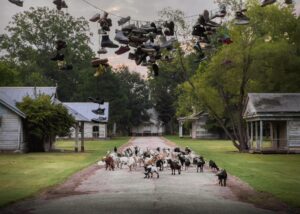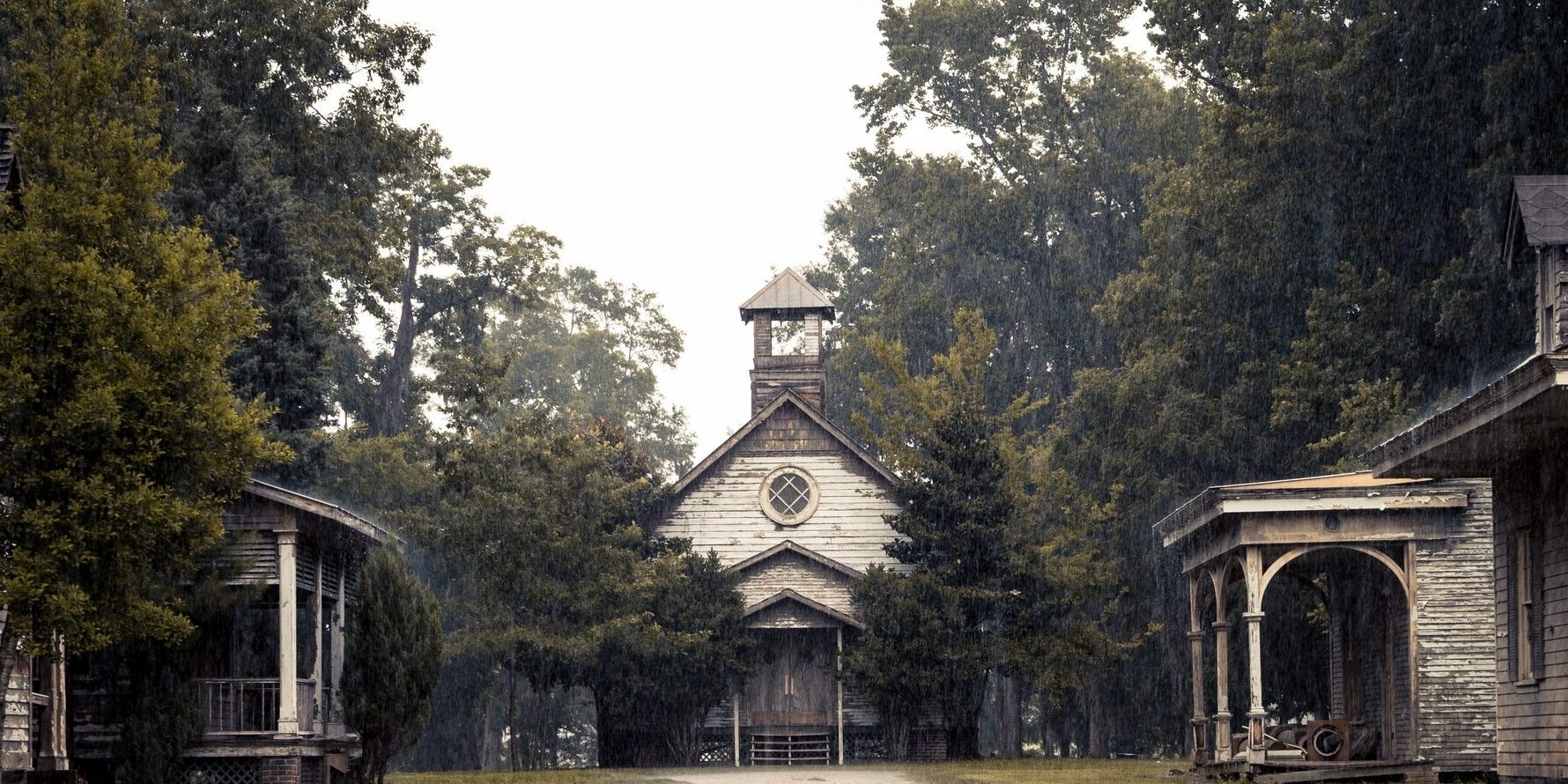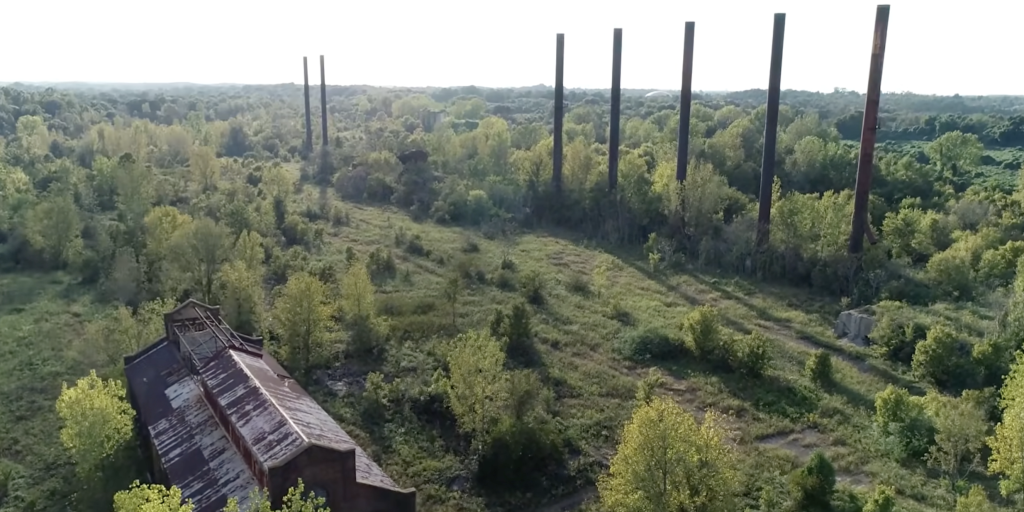For those of us born and raised in Alabama, we share memories from childhood of finding small spaces across the state that seemed to hold a certain magic—a garden in a grandmother’s backyard, a wooded path that wove along the lakeside, or a little hiding spot among the hills. For all of us, there was a place in time that felt, if only for a moment, like we had stumbled upon something secret. It is that very feeling that acclaimed film director Tim Burton experienced when he first visited a small, remote island in Millbrook, Alabama.
Scouting locations for his upcoming film Big Fish based on the Daniel Wallace novel of the same name, Burton was taken by the idea of transforming the small, shaded island into a set for the fictional town of Spectre. Big Fish follows the story of a son who, as his father is dying, listens to his anecdotes of what he claims to have experienced throughout his life. All of the stories are outrageous and, frankly, unbelievable; we watch the main character, a younger version of the father, Edward Bloom, played by Ewan McGregor, as he acts out the fantastical tales.

At the beginning of the movie, Edward is distraught with desperation to attain his lofty aspirations. He finds and follows a path out of town that leads him into an increasingly dark wood, on the other side of which he emerges to find something seemingly out of a storybook. The town that meets him is poised to portray a seeming last bastion of idyllic Southern life. Edward makes his way into the town only to be met with a myriad of questions and curiosities that go on to color the cinematic story.
Later, Edward makes an attempt to return to Spectre. Now abandoned and in a state of disrepair, the town is a shell of its former self. A stark contrast to the earlier depiction of the Southern safe haven, the abandonment could be interpreted to symbolize the passage of time and perhaps the loss of the magic and idealism that was found in the experiences of his youth.

It is a story that speaks to many themes, not the least of which is the complexity of life and loss; it resonated with thousands. Snagging several nominations across the Academy Awards, Golden Globes, and BAFTAs, the owners of the island made what many have deemed the right decision to keep the set as the production team left it. The property has been in the Bright family for decades, and in an interview with Alabama News Center, co-owner Lynn Bright shared her feelings about the award-winning film.
“I remember watching the movie the first time… I probably missed what I would later love because I was so focused on seeing the island and the sights that were so familiar to me in the movie. As I’ve watched it several times since I’ve really come to understand why it means so much to so many. It has really touched me and a lot of other people. It really has far more value to it, its message, that I got (in) my first viewing.”

One of the many quirks of the town in the film is that all residents toss their shoes over the clothesline, opting instead to sink their toes into the lush green grass. This poses a challenge to Edward as he sets out to return home, unprepared to settle down into life in the seemingly untouched town of Spectre. For many years, visitors have come by with an old pair of shoes poised to find their place among the dozens at the town’s entrance. The island has also become known for its new residents. An impressive population of goats have made the fictional town their home, and they can often be found among the set pieces. Taking up residence in the homes and town church, they have become a lovable part of the world Tim Burton left behind.
Courtesy of Soul Grown













